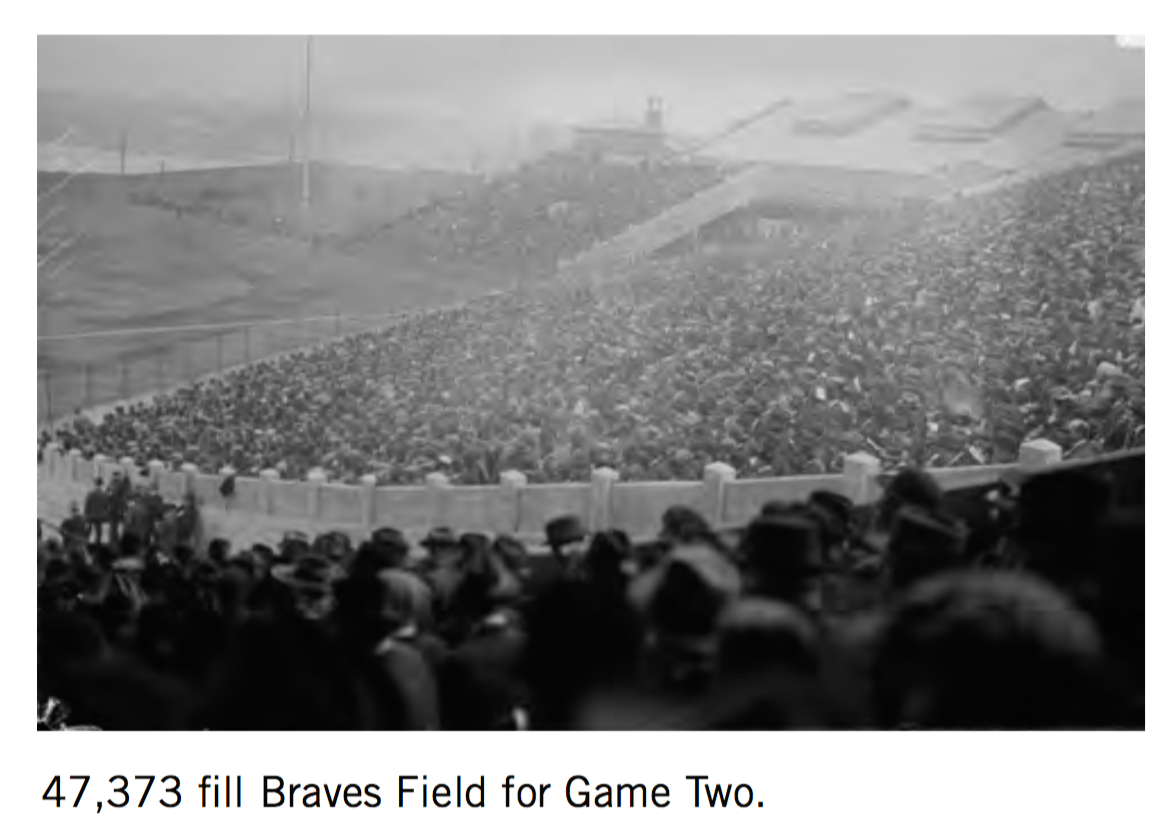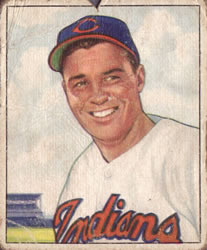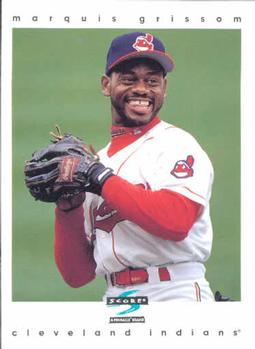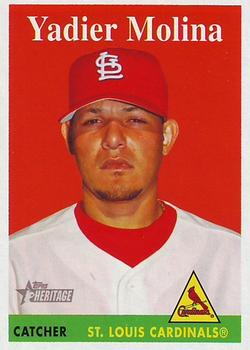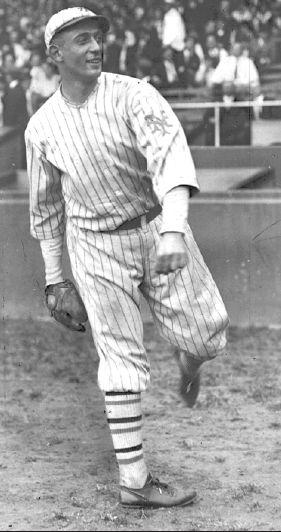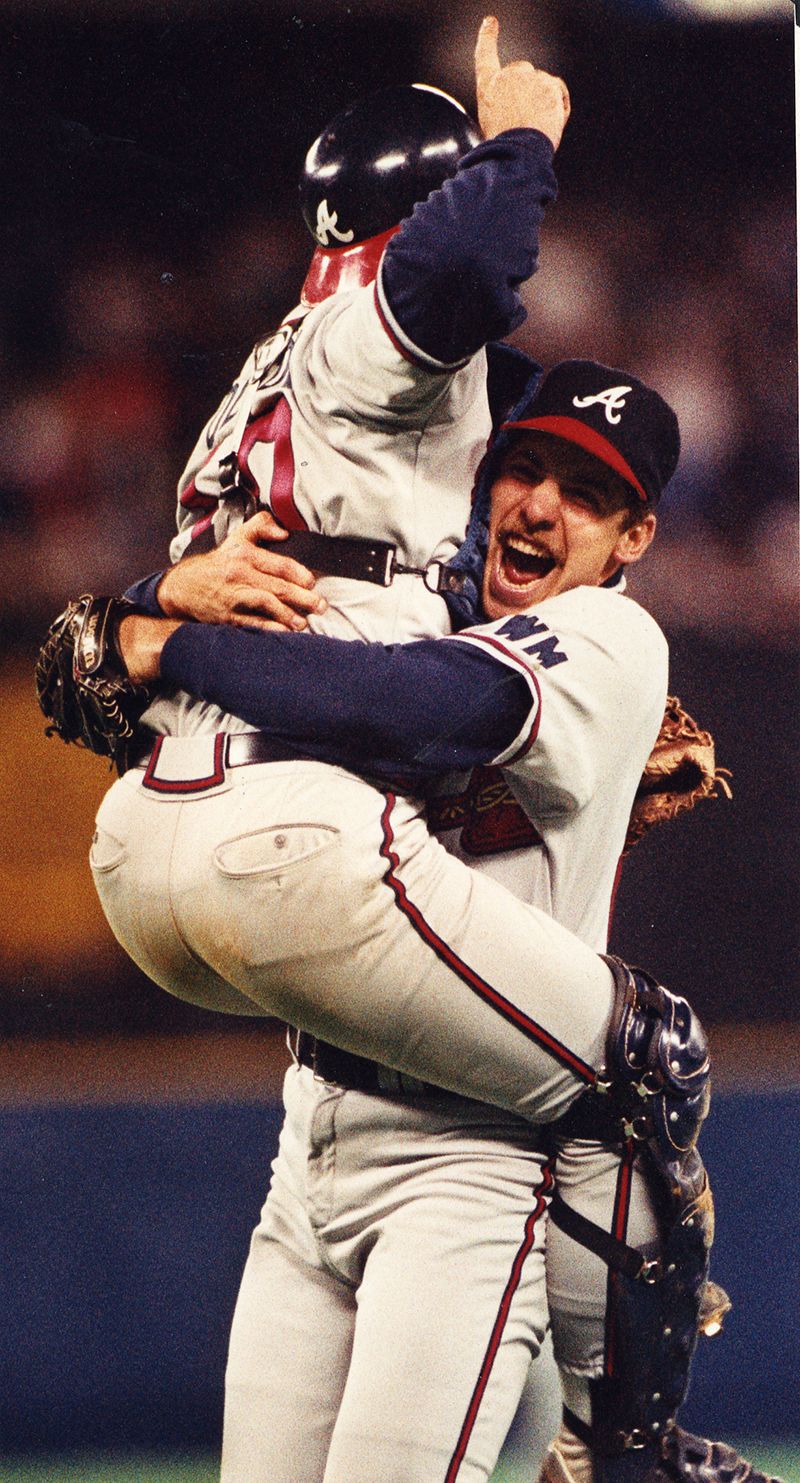October 8, 1945: ‘Tragedy and Farce’: Stan Hack’s hit in 12th wins Game 6 for Cubs
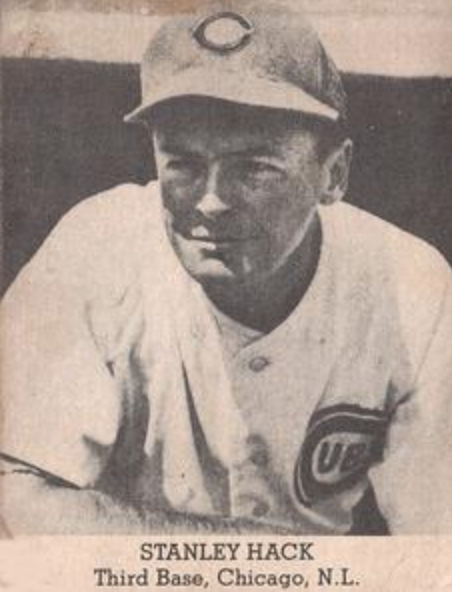 Today, it would be called an “instant classic.”
Today, it would be called an “instant classic.”
For the 41,708 fans at Wrigley Field that October afternoon, it was one of the wildest games ever witnessed, an emotional rollercoaster of an affair that never let up until the final, madcap hit.
Game Six of the 1945 World Series between the Chicago Cubs and the Detroit Tigers not only was thrilling, it was long: The outcome remained undecided until the bottom of the 12th inning. At 3 hours and 28 minutes, it was the longest postseason contest ever to that point (the previous record was 2:54, set in 1941). There was a lack of timely hitting: The teams set a World Series high for men left on base with 24 (12 each). More players were used than in any previous World Series game – 38, shattering the old mark of 29. Wrote Arch Ward of the Chicago Tribune: “The traffic between both benches and home plate looked like State and Madison at the rush hour.”1
Much was at stake. Manager Steve O’Neill’s Tigers were one victory away from grabbing the franchise’s first world championship in 10 years. The Cubs, meanwhile, just wanted to live to see another day.
For most of the afternoon, it looked as though they would do just that.
With cloudy skies, temperatures in the 40s, and a brisk, swirling wind, it was hardly baseball weather. On the mound for Detroit was Virgil Trucks, coming off a dominant win in Game Two. The 28-year-old right-hander was happy just to be on the mound again, having pitched only one regular-season game the past two years due to service in World War II. Back in 1943, he had won 16 games, and 14 the year before that as a rookie. Opposing Trucks was Claude Passeau, the 11-year veteran with 151 victories under his belt. Passeau had pitched his heart out in Game Three, one-hitting the Tigers.
Staked to an early 1-0 lead, Trucks cruised through the first four innings with only minimal trouble. He never got out of the fifth, however. The Cubs lit up Trucks for four hits and a walk, including Phil Cavarretta’s two-run base knock that finally sent him to an early shower. The North Siders tacked on another run an inning later off former ace Tommy Bridges to make it 6-1.
Passeau, meanwhile, had been on thin ice. He escaped a bases-loaded jam in the second inning, inducing Skeeter Webb to hit into a force out, and again in the fourth, this time retiring Webb on a fly to deep center field. The turning point came in the sixth: Jimmy Outlaw hit a line drive back at Passeau, who instinctively reached out with his right (pitching) hand, only to have the ball tear the nail off his third finger. He pitched through the pain, but was not effective, and after giving up a walk and two singles in the seventh, manager Charlie Grimm finally took him out. By the time the frame was over, Detroit had whittled it down to a 5-3 game.
Chicago, however, got the two runs back in the very next inning. Bridges, the former World Series hero for Detroit, was past his prime at 38, another returning war vet who had seen little baseball action the past two seasons. He issued a single and three walks, including one with the bases loaded, before exiting. Roy Hughes’s run-scoring single off Al Benton upped the lead to 7-3, giving the Cubs some breathing room.
The Tigers, however, refused to go quietly in the eighth. They scored a pair to drive reliever Hank Wyse from the mound. Enter ancient lefty Ray Prim, the National League’s ERA leader in 1945. With a man at third and one out, Doc Cramer drove a fly to deep left field. Peanuts Lowry made a spectacular diving catch, but the run scored to close the gap to one.
That brought up Hank Greenberg, another hero of World Series past for Detroit (He had added to his legend by swatting a key three-run homer back in Game Two). On a full count, Greenberg launched a titanic shot through a crosswind of gale force, the ball landing on the catwalk beyond left field. The game was tied.
Both teams had their chances after that. In the bottom of the eighth, reliever Dizzy Trout walked leadoff man Stan Hack, who reached third with two down. Phil Cavarretta, however, could manage only a fly ball to Greenberg in left field to end the threat. The Tigers made a bid in the ninth, putting runners at the corners with only one out. Trout bounced to the shortstop Hughes, who fired home in time to catch Outlaw in a rundown. When Andy Pafko led off the bottom of the ninth with a double, the Cubs faithful could taste victory. He never made it home, however, and the game went into extras.
Trout was still on the mound in the 12th. He retired the leadoff man on an easy grounder, but then ran into trouble. Little-used Frank Secory, a .158 hitter in the regular season, pinch-hit for the injured Lenny Merullo. He shocked everyone by lining a sharp single to left-center. Pinch-running specialist Billy Schuster came in for him at first base.
One out later, Stan Hack made his way to the plate. Hack already had three hits and two RBIs this afternoon. His two-run bases-loaded single back in the fifth had given his team its first lead of the game. A fan favorite for 14 seasons in Chicago, he had hit a career-high .323 in 1945.
Hack looked at an outside pitch for ball one, then took two quick strikes. He followed with a sinking line drive to left field. Clearly, it was going to fall in front of Greenberg; the only question was whether he could hold Schuster at second base. Greenberg charged in on the ball … but it took a funny hop, bouncing over his shoulder and on toward the wall. Greenberg turned and made chase, but there was no stopping the speedy Schuster, who scored easily, running faster than he ever had in his life. The emotionally spent crowd erupted in euphoria. There would indeed be a Game Seven in the 1945 World Series.
The three official scorers huddled, and their verdict was “E-7.” Greenberg had charged the ball unnecessarily, they surmised. He should have played it safe, keeping the ball in front of him. In a span of mere innings, Greenberg had gone from hero to goat, at least in the eyes of the scorers.
Others quickly came to Greenberg’s support, claiming that the ball had hit something on the turf. (Grimm swore it must have struck a drain cover.) The bounce was too high, too sudden, they argued, and Greenberg did not stand a chance.
In the end, the scorers changed their ruling, crediting Hack with his fourth hit of the game. But it did nothing to change the outcome for the Tigers. Greenberg took it particularly hard, heading straight to the shower without speaking to anyone. Later, he insisted that the bouncing ball never touched him.
The exuberant Cubs, on the other hand, stormed into the clubhouse as if they had just won the Series. Grimm had his highest praise for winning pitcher Hank Borowy, the Game Five starter who was working on only one day’s rest. With his rubber arm, Borowy tossed four shutout frames after taking over for Prim to start the ninth.
“This game of games,” as Edward Burns of the Tribune called it, filled with “tragedy and farce,” was “unprecedented in world series history.”2 The Sporting News deemed it, “one of the dizziest World’s Series games ever played.”3
This article appears in “Wrigley Field: The Friendly Confines at Clark and Addison” (SABR, 2019), edited by Gregory H. Wolf. To read more stories from this book online, click here.
Sources
https://www.baseball-reference.com/boxes/CHN/CHN194510080.shtml
https://www.retrosheet.org/boxesetc/1945/B10080CHN1945.htm
Notes
1 Arch Ward, “In the Wake of the News,” Chicago Tribune, October 9, 1945.
2 Ed Burns, “Cubs Win, Tie Series in 12-Inning Game,” Chicago Tribune, October 9, 1945.
3 “Cubs Bounce Back on Hop Over Greenberg’s Head,” The Sporting News, October 11, 1945.
Additional Stats
Chicago Cubs 8
Detroit Tigers 7
12 innings
Game 6, WS
Wrigley Field
Chicago, IL
Box Score + PBP:
Corrections? Additions?
If you can help us improve this game story, contact us.


